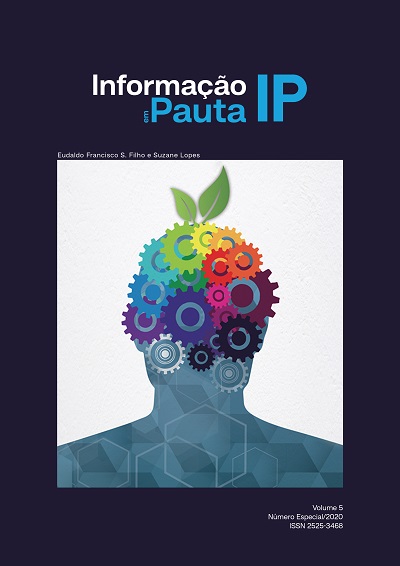Ethics, privacy and confidentiality of health information
investigating ethics in a society of knowledge, information, learning and control from a Polylogical Theoryaction
DOI:
https://doi.org/10.36517/2525-3468.ip.v5iespecial1.2020.43509.9-22Keywords:
Ethics, Privacy, Confidentiality, Information, Theoriaction PolilogicalAbstract
The motivation of this article / essay arose from a problem translated into the question: What are the dominant ethics in human relations mediated by telematic social networks? It is intended to present a research perspective of the dominant ethics in a philosophical and literary key stripped of any intention of finishing or of closed convictions to the interrogating dialogue. The question guide asks what is generally understood by ethics when anyone speaks in ethics, privacy and confidentiality of health information. It is in question to construct a new ethical modeling for safeguarding the privacy and confidentiality of health information and in all sectors of human activity. This new modeling must include the complexity of natural and human phenomena and extend the field of knowledge in its infinite multiplicity so that it is possible to educate for a civil life in which everyone is responsible for all and respect for the life of others becomes an ethical principle without which will all be just cold control and manipulation, and all will be subject to all kinds of threats and blackmail, from improper invasions of their privacy through the traces left on the network. Understanding, however, how ethics today is in managing social networks in health is the first step toward envisaging viable and secure solutions that move toward a common-ethical learning that overcomes the current barbarism of Dataism or Data Religion.
Downloads
References
HARENDT, Hannah. Sobre a violência. Rio de Janeiro: Civilização Brasileira, 2010.
KANT, Immanuel. Crítica da razão prática. Lisboa: Edições 70, 1994.
Downloads
Published
How to Cite
Issue
Section
License
Autores que publicam nesta revista concordam com os seguintes termos:
a. Autores mantém os direitos autorais e concedem à revista o direito de primeira publicação, com o trabalho simultaneamente licenciado sob a Creative Commons Attribution License que permitindo o compartilhamento do trabalho com reconhecimento da autoria do trabalho e publicação inicial nesta revista.
b. Autores têm autorização para assumir contratos adicionais separadamente, para distribuição não-exclusiva da versão do trabalho publicada nesta revista (ex.: publicar em repositório institucional ou como capítulo de livro), com reconhecimento de autoria e publicação inicial nesta revista.
c. Autores têm permissão e são estimulados a publicar e distribuir seu trabalho online (ex.: em repositórios institucionais ou na sua página pessoal) a qualquer ponto antes ou durante o processo editorial, já que isso pode gerar alterações produtivas, bem como aumentar o impacto e a citação do trabalho publicado.



